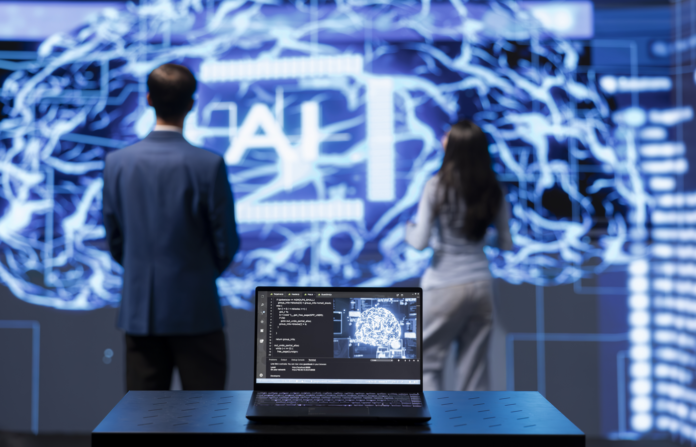A U.S. congressional commission issued a report to Congress calling for a Manhattan Project-style program to fund and develop Artificial General Intelligence (AGI) in order to outpace China in its attempt at technological supremacy. AGI refers to an AI system equal to or better than humans across all cognitive domains. Some AI experts, including Sam Altman and Elon Musk, think the first AGI system could arrive in 2025.
Public and Private Sector Partnership on AI
The commission responsible for this report is the U.S.-China Economic and Security Review Commission, a bipartisan commission designed to advise lawmakers on U.S.-China policy. It’s known for having rather extreme policies regarding competing with China strategically and economically. In the report, the commission claims that the Chinese Communist Party has prioritized AI research using a public-private approach and urges the U.S. government to do the same if it wants to remain the global leader in AI.
“The United States currently leads the world in developing robust AI models,” the commission wrote, “but China is pursuing numerous government-led and ostensibly private efforts to develop advanced AI models.” It sees China’s rapid rise in these powerful technologies as a source of several national security issues, ranging from dependence on China for parts to “potential threats to U.S. military superiority.”
Additional Approaches to Achieve AGI
In addition to creating a public/private sector coalition, the commission also offers two other specific recommendations for winning the race to AGI:
- To increase the rate of R&D, give the executive branch multi-year contracting authority and fund leading AI companies across the AI supply chain.
- Direct the Secretary of Defense to give projects in the AI ecosystem a Defense Priorities and Allocations System “DX Rating” so they become national priorities.
It also recommends several other critical areas of AI investment for the United States, including advanced semiconductors, cloud systems, quantum technology, and advanced batteries.
The strong support for a government-private collaboration to achieve a technological breakthrough for national security brings to mind The Manhattan Project, an enormously expensive collaboration between the public and private sector to create the atomic bombs that were dropped on Japan to end World War II.
Another key proposal of the annual report is to get rid of de minimis treatment for e-commerce goods coming into the United States, as many of them could be hazardous. For example, the commission suggests legislation banning the importation of autonomous humanoid robots and other potentially threatening technologies controlled by Chinese entities. Lawmakers are divided on whether to stop de minimis, and shipping companies are lobbying against it, stating it could hurt the e-commerce industry.
